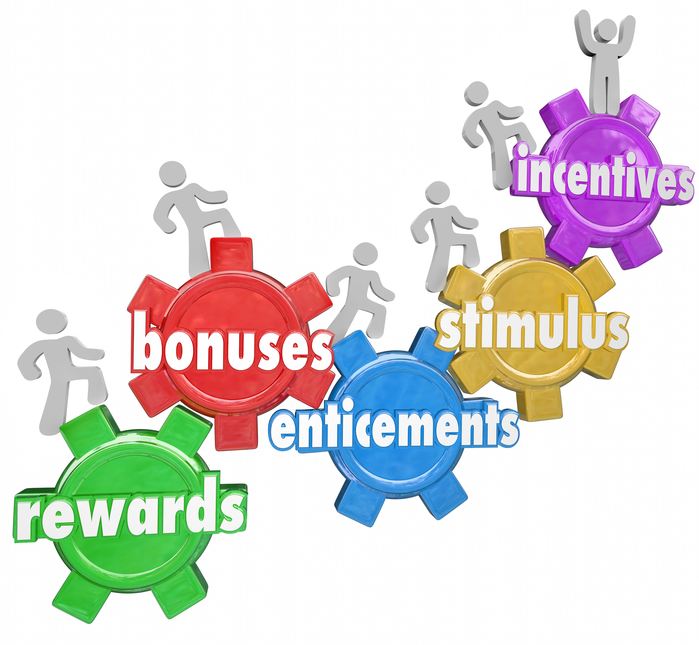
A sales bonus acts as an incentive for employees to meet goals. Bonuses can be either fixed or on commission, these in turn van have advantages and disadvantages to both employers and employees. For example, fixed bonuses can show that employees slow down once they reach their target sales; on the other hand, a bonus on commission displays harder work in order to yield a higher bonus. This is why many companies opt to give quarterly fixed bonuses as employees have a finer margin to reach the target, and therefore consistently maintain a high work ethic.
From the perspective of the employer, sales bonuses aim to secure two important aspects: employee job satisfaction and increasing sales/profit. Retaining talented salespeople is an on-going problem for HR managers. According to research carried out by the Incentive Research Foundation, up to 56% of HR managers fear their top talents will leave for a new job within a year; however, the research also claimed that corporate incentive programmes motivated 66% of employees to remain at their job.
Keeping employees happy also has a profound effect on sales. The same study suggests that companies that actively engage workers profit more than those that do not. According to the data collected by the foundation, organizations with higher than average levels of employee engagement realized 27% higher profits, 50% higher sales, 50% higher customer loyalty levels, and 38% above-average productivity. These margins are a clear indicator towards the benefits of a well-calculated incentive programme.
From the perspective of the employee, it is quite simple: a sales bonus is a chance of earning more money. A bonus offers very little in the form of job security, it is merely a little pat on the back for doing the job you are expected to do with the company. However, sales bonuses are all but guaranteed.
In order to earn the bonus, the employee must reach a target set by their employer. Setting targets for employees can be very sensitive; it could be a target that is unrealistically unachievable, which can be misinterpreted as purposefully denying an employee the chance of a bonus, or contrarily, an effortlessly reachable target that effectively secures the employee with a bonus. Targets should be ambitious but achievable, and they can be individual, team or company goals. With group or company targets, the shift of the weight of pressure can stimulate a group towards achieving more ambitious results; less pressure and a reward at stake are often effective motivators for employees.
Sales bonuses are often a combination of commission, bonuses and incentives. Ideally, employees seek commission-based bonuses as mentioned previously; their earnings can be maximised through this. This is where the employee takes a percentage of all sales they made, whereas fixed bonuses normally see an additional percentage of salary for reaching a goal. Incentives can include holidays paid for by the company or trips away; they are often overlooked as bonuses but they are substitutes for monetary bonuses.
It is important not to give money away that the company has not yet received when contracting and calculating bonuses. Say for example, a company completes a deal that will not be paid for until six months later, then the bonuses of the employees that completed the deal will also have to wait at least six months before being paid out.
With the incentive of a sales bonus, employee morale is generally better, along with productivity, sales and profits. Working towards a reward tends to improve all-round performance.
Joe Mackenzie
